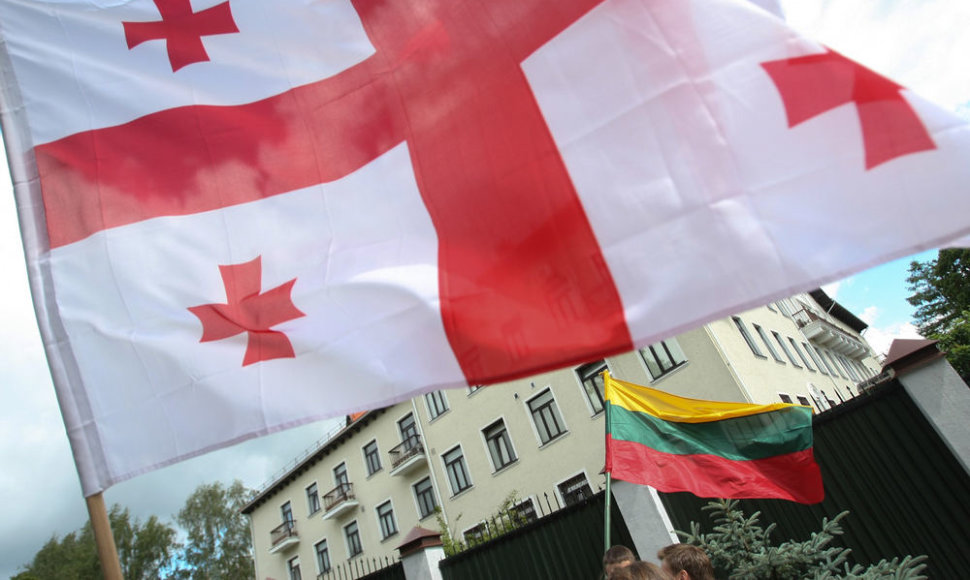Georgia's new Ambassador to Lithuania Khatuna Salukvadze told BNS that her country is not giving up its plans of joining the EU and NATO, rejecting accusations that the new administration is persecuting political opponents for political reasons.
Just like Armenia and Moldova, Georgia expects to initial the EU Association Agreement by the November summit. The agreement includes a free trade pact as well.
"The Association Agreement and DCFTA (Deep and Comprehensive Free Trade Agreement) are the mechanisms that will actually take Georgia to the greater, higher and qualitatively new level of cooperation with the EU," said the diplomat who started heading the Georgian mission in Vilnius in July.
"Truly, it (the summit) can have some historical value to seal the Europeanization of the Eastern Partnership states irreversibly," Salukvadze told BNS.
The meeting of top leaders of Armenia, Azerbaijan, Belarus, Georgia, Moldova and Ukraine with heads of EU member-states and institutions is held in Vilnius in the framework of Lithuanian presidency over the EU Council in the second half of this year.
The Eastern Partnership program aims to promote closer EU ties with the six post-Soviet nations, however, probably won't offer them a membership perspective yet.
In the ambassador's words, Georgia realizes it will not join the EU soon: "We do not have the expectations that we will become European Union member in a short term or even the medium term."
"Georgia considers itself as a European state. It is the choice of the people. It is something that is irreversible," she added.
The diplomat assured that Georgia would continue its efforts to seek NATO membership and maintain close relations with the United States, at the same time aiming to normalize its ties with Russia..
"With those foreign policy pillars unchanged - US, EU and NATO, Georgia's foreign policy has a new component, which is attempt to normalize relations with the Russian Federation, of course, without crossing the red line of Georgia's sovereignty and territorial integrity," she told BNS.
Georgia severed its relations with Russia after the brief war of 2008, which the neighbors waged over South Ossetia and Abkhazia, Georgia's two breakaway provinces.
Tbilisi holds no control over the territories. Moscow has recognized them as independent states.
Georgia and the rest of the international community, with the exception of a few countries, deem South Ossetia and Abkhazia occupied territories.
Critics maintain that Georgia still needs to implement a number of reforms to consolidate European values. The government of billionaire Bidzina Ivanishvili that came to power after the October 2012 elections has come under criticism from the West for arresting former government officials.
Salukvadze categorically rejected the accusations of “selective justice” in Georgia, saying that legal persecution of former top-ranking officials is a sign of independence of the law-enforcement sector.
"Impunity for the government officials is something that new government is trying not to allow any more. Selective justice is not something that describes Georgia's justice today. On the contrary, the freedom of the judiciary has increased," the ambassador said.
She assured that Georgia's administration would organize transparent elections in October. In Salukvadze's words, the new president and the prime minister should be present at the Vilnius summit in November.












